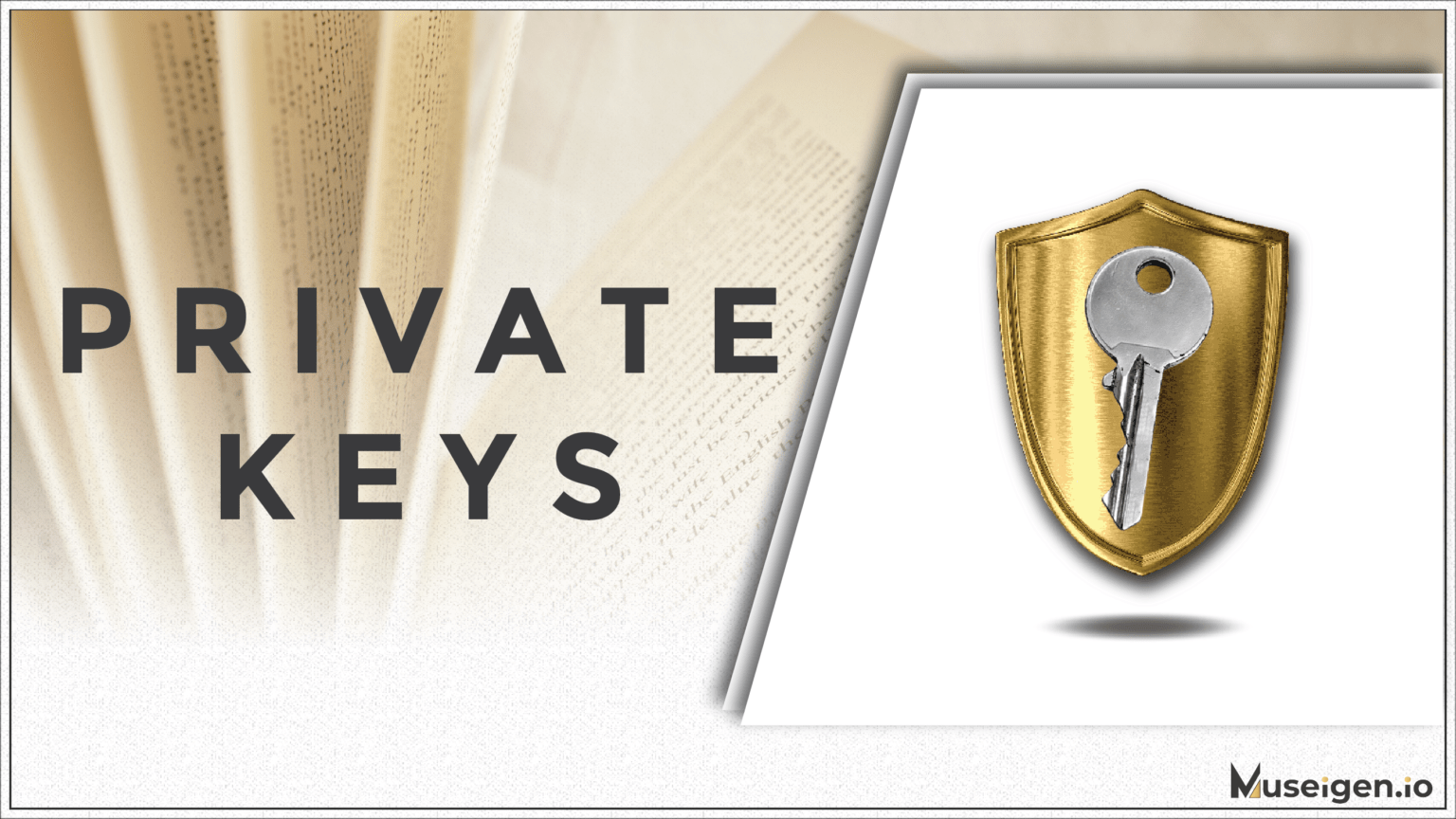What is a Private Key?
Think of a private key as a unique password. In the digital money (cryptocurrency) world, this password lets you approve money transfers and shows that the digital money is yours.
How Do Private Keys Work?
In the digital money world, you have a digital “wallet” where you keep your money. To put money in or take money out, you need special codes. The private key is one of these codes. It’s like having a key to a locked box. Anyone can put money into the box, but only the person with the key can take money out.
Explore Deeper the Role and Importance of Private Keys
Private keys are the backbone of cryptocurrency operations. Here’s a detailed look at their essential functions and characteristics:
Digital Signatures: Through private keys, users can craft digital transaction signatures. These signatures act as a secure stamp of approval, ensuring that only the rightful owner of the private key can greenlight a transaction.
Public Key Creation: Each private key has a partner in the form of a public key. This public key, generated using a particular cryptographic method, can be shared openly, allowing others to send you cryptocurrency without revealing your private key.
Ownership and Control: Holding a private key means owning and controlling the associated digital assets. If someone else can access your private key, they can manage and spend your funds. Hence, safeguarding it is paramount.
Irreplaceable If Lost: A lost private key is gone forever. There is no central helpline to retrieve it. Consequently, losing your private key means losing access to your digital assets permanently.
Potential for Theft: If malicious actors get their hands on your private key, they can steal your digital assets. Thus, it’s imperative to maintain the confidentiality and security of your private key. Remember the adage, “Not your keys, not your wallet?” Once lost, they’re irretrievable.
Digital Wallets and Their Connection to Private Keys
Digital wallets, akin to apps, are designed to safeguard your cryptocurrency. These wallets autonomously generate and store your private key. When you initiate a transaction, the wallet uses the private key to validate it. Misplacing this key renders your funds inaccessible, emphasizing the importance of its secure storage.
Key Storage Types and Wallet Varieties
There are two primary methods to store your keys, each with two wallet types:
- Custodial Wallets: Think of these as banks for your digital money. A third party, like a company, keeps your private key. Examples include exchanges like Coinbase and Binance. They can be:
- Cold: Offline and highly secure. Examples might include the deep storage solutions used by some exchanges.
- Hot: Online and user-friendly. Examples include wallets provided by exchanges where you can quickly trade.
- Non-Custodial Wallets: These allow users to be their own bank, having complete control over their private keys, which the wallet provider cannot access. Users bear full responsibility for their wallets’ safety, and no intermediary is involved in storing or transferring cryptocurrencies. Examples include:
- Hardware Wallets: Devices designed to hold private keys offline securely. Examples are Trezor and Ledger Nano.
- Mobile Apps: Available for iOS and Android. Examples include Trust Wallet and Exodus.
- Browser Extensions: Available for browsers like Chrome and Firefox. MetaMask is a popular example.
- Desktop Software: Available for Windows and Mac. Examples include Electrum and Atomic Wallet.
Best Practices for Safeguarding Private Keys
- Opt for robust, unique passwords for your wallets.
- Activate two-factor authentication (2FA) for an added layer of security.
- Consistently backup wallet data, storing these backups in multiple fortified locations.
- Encrypt backups to ward off unauthorized access.
- Ensure physical safety for your wallets and backup sites.
- Shield your devices from harmful software using trusted security tools.
- Steer clear of public Wi-Fi and shared devices when accessing your wallets.
- Regularly update your wallet software and security utilities.
- Always keep your wallet’s recovery phrase offline.
- Utilize password managers and always craft new passwords for different wallets.
- Exercise caution with wallet software; some might have malicious intentions.
In Conclusion
Private keys are the cornerstone of cryptocurrency security, allowing users to access and manage their digital assets. Recognizing the significance of private keys and ensuring their protection is vital for all cryptocurrency users. Whether you’re a newcomer or a seasoned trader, the safety of your private key should always be a top priority.
___________
Disclaimer: “The articles on this website reflect the opinions of the respective writers and are not the opinion of Museigen.io. In addition, nothing in this article should be considered as financial advice. It is essential to conduct your independent research and consult with a qualified financial advisor before making any financial decisions.”


